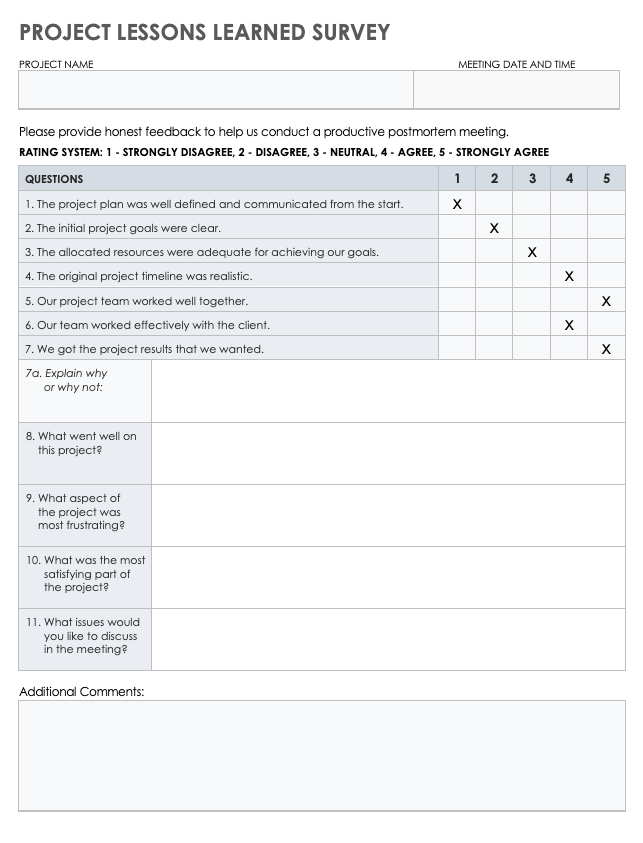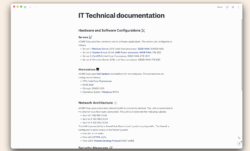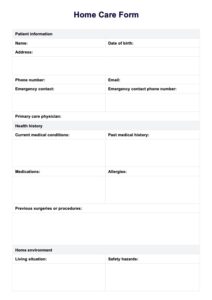Embarking on any project, big or small, is an adventure filled with challenges, triumphs, and invaluable experiences. Yet, too often, once the project is done and dusted, we rush into the next one without truly reflecting on what just happened. This is where the magic of “lessons learned” comes into play, transforming individual experiences into collective wisdom that can propel future endeavors to greater success. It’s about taking a deliberate pause to capture insights, celebrate what worked, and understand what didn’t, preventing the same pitfalls from tripping you up again.

However, simply saying “let’s learn lessons” isn’t enough. Without a structured approach, these vital insights can remain scattered, anecdotal, and ultimately, lost. This is precisely why a well-designed project lessons learned survey template becomes an indispensable tool in your project management arsenal. It provides a consistent framework for gathering comprehensive feedback from all stakeholders, ensuring that no stone is left unturned and that the most critical takeaways are systematically recorded and acted upon. It transforms a vague concept into a concrete, actionable process, empowering your team to not just finish projects, but to continuously improve with every single one.
Why Your Projects Need a Robust Lessons Learned Survey
Think about it: every project is a unique learning experience. Without a systematic way to capture those learnings, you’re essentially starting from scratch with each new endeavor, repeating mistakes and missing opportunities to leverage past successes. A robust lessons learned survey isn’t just a formality; it’s a strategic asset that fuels continuous improvement and builds organizational knowledge. It helps bridge the gap between individual experiences and collective wisdom, ensuring that valuable insights aren’t lost when team members move on or new projects begin. It’s like creating a powerful knowledge base tailored specifically to your organizational context.
The traditional “post-mortem” meeting, while valuable, often suffers from recency bias or the loudest voices dominating the discussion. A survey, on the other hand, provides a safe, anonymous (if desired) space for everyone involved to contribute their honest perspectives, from the project manager to the individual contributors and even external stakeholders. This broader input leads to a more comprehensive and nuanced understanding of what truly transpired, uncovering hidden challenges and unexpected wins that might otherwise go unnoticed. It democratizes the feedback process, ensuring every voice has a chance to be heard.
Moreover, the act of completing a survey prompts deeper reflection. Instead of a quick chat, individuals are encouraged to think critically about specific aspects of the project lifecycle. What processes worked well? Where did communication break down? Were the resources adequate? These structured questions guide participants to provide detailed, actionable feedback, rather than general observations. This focused input is crucial for identifying specific areas for improvement, whether it’s refining project planning, enhancing team collaboration, or improving risk mitigation strategies for future projects.
Implementing a consistent project lessons learned survey template across all your initiatives helps build a culture of continuous learning within your organization. It signals that feedback is valued and that every project contributes to the collective growth and success of the team and the company. Over time, this systematic approach can significantly improve project predictability, efficiency, and overall success rates.
Key Benefits You’ll Unlock:
- Improved Project Planning: By understanding past challenges and successes, future project plans can be more realistic, detailed, and robust.
- Enhanced Team Collaboration: Insights into communication breakdowns or effective teamwork strategies can foster better internal dynamics.
- Better Risk Management: Identifying unexpected risks or successful mitigation techniques from previous projects strengthens future risk assessments.
- Stronger Stakeholder Satisfaction: Understanding what delighted or frustrated stakeholders in the past can lead to more tailored and successful engagement.
- Continuous Organizational Learning: Building a repository of institutional knowledge that prevents repeating errors and propagates best practices.
Crafting and Utilizing Your Project Lessons Learned Survey Template Effectively
Creating an effective project lessons learned survey template goes beyond simply listing a few questions. It requires thoughtful consideration of what information you genuinely need to collect to drive meaningful change. A well-designed template should be comprehensive enough to cover all critical aspects of a project, from initiation to closure, while also being concise enough to encourage completion. The goal is to extract actionable insights, not just anecdotal stories, so the questions should be clear, specific, and focused on eliciting practical feedback. Consider including sections on project planning, execution, team dynamics, communication, risk management, and stakeholder engagement.
The timing of your survey distribution is also crucial for maximizing its impact. Ideally, the survey should be sent out shortly after a project’s completion, while memories are still fresh and details vivid. Waiting too long can lead to forgotten details or a skewed perception of events. It’s also important to determine who should receive the survey – typically, this includes the core project team, key stakeholders, and possibly even significant vendors or clients, depending on the project’s nature and scope. Ensuring a comfortable environment for honest feedback, perhaps by offering anonymity, can significantly increase the quality and quantity of responses.
Once you’ve collected the survey responses, the real work begins: analysis and action. Don’t let your beautifully collected data simply sit in a spreadsheet. This phase involves systematically reviewing the feedback, identifying recurring themes, pinpointing root causes of issues, and highlighting areas of exceptional performance. It’s helpful to categorize feedback into “what went well,” “what went poorly,” and “what could be improved,” but always push for specific examples and suggestions rather than vague statements. This rigorous analysis forms the foundation for actionable recommendations.
Finally, the insights gathered from your project lessons learned survey template must be translated into tangible improvements for future projects. This means documenting key takeaways, creating a lessons learned knowledge base, and most importantly, assigning owners and deadlines for implementing changes based on the feedback. Schedule a follow-up meeting with key stakeholders to discuss the findings and collectively decide on the most critical actions. Sharing these lessons broadly across the organization helps embed a culture of continuous learning and ensures that valuable experiences contribute to the collective intelligence of your team, making every subsequent project more efficient and successful.
A structured approach to capturing and acting on project insights is not just good practice; it’s a cornerstone of high-performing project teams. By consistently utilizing a well-crafted project lessons learned survey template, organizations can transform past experiences into a powerful roadmap for future success, ensuring that every completed project becomes a stepping stone towards greater efficiency, innovation, and overall achievement. It’s about building a future where your projects don’t just finish, they evolve and improve, project after project.



